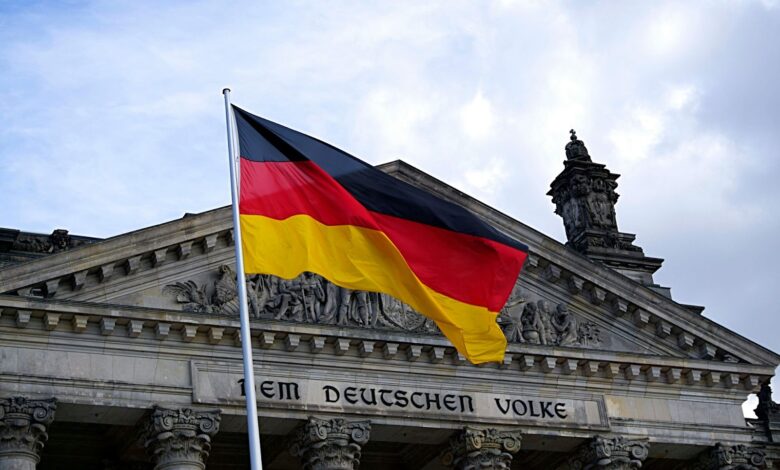Germany Visa for Indians: Process, Requirements, Fees, and Timelines

Germany is one of the top destinations in Europe for Indians seeking opportunities in travel, education, employment, or long-term settlement. Known for its rich cultural heritage, top-tier universities, and strong economy, Germany offers a range of visa options for Indian citizens. But navigating the visa process can be overwhelming without the right guidance.
Germany Visa for Indians is essential for Indian nationals planning to visit Germany for tourism, business, study, or family purposes. Depending on your travel intent, you’ll need to apply for either a short-stay Schengen C‑visa (valid for stays up to 90 days within a 180‑day period) or a long-stay national D‑visa (for work, study, or family reunification).
The process includes filling out the visa application form online, scheduling an appointment at the German Embassy or Consulate, and providing documents such as a valid passport, Schengen travel insurance, confirmed travel itinerary or admission letter, proof of accommodation, sufficient financial means, and payslips or sponsorship letters. Visa fees must be paid at the time of submission. As processing times can range from 15 days for short-stay visas to several weeks or months for national visas, it’s vital to apply for the Germany Visa for Indians well ahead of your planned departure.
In this article, we’ll cover everything you need to know about applying for a Germany visa for Indians, including the types of visas available, documents required, application fees, and how long it takes to get approved.
Types of Germany Visas for Indian Citizens
The type of visa you should apply for depends on your purpose of travel and the length of your intended stay. Indian citizens can apply for the following visa categories:
1. Schengen Visa (Short-Stay)
This visa allows Indian travelers to visit Germany and other Schengen countries for up to 90 days in a 180-day period. It’s ideal for tourism, business meetings, short training programs, or family visits.
2. National Visa (Long-Stay)
For stays longer than 90 days, such as for education, employment, research, family reunification, or job-seeking purposes, Indian applicants need to apply for a long-term visa directly at the German Embassy or Consulate.
Germany Visa for Indians: Required Documents
Each visa category has its own specific document checklist. However, some documents are common across most visa types.
Common Documents for All Applicants
- Completed and signed visa application form
- Valid Indian passport (issued within the last 10 years and valid for at least 3 months beyond the return date)
- Two recent passport-size photographs as per biometric specifications
- Proof of travel itinerary (flight bookings)
- Proof of accommodation (hotel booking or invitation letter from host in Germany)
- Proof of financial means (bank statements, ITR, salary slips)
- Travel health insurance (minimum coverage of €30,000 for the entire Schengen area)
- Cover letter explaining the purpose and duration of your visit
Additional Documents Based on Visa Type
- Tourist Visa: Detailed travel plan, leave approval (if employed)
- Business Visa: Invitation from German company, business registration documents
- Student Visa: Admission letter from a recognized German university, proof of blocked account or scholarship
- Work Visa: Valid job offer, employment contract, recognition of qualifications in Germany
It is essential to submit genuine and verifiable documentation. Any inconsistencies can result in delays or rejection.
Visa Fees for Indian Citizens
The cost of a Germany visa for Indians depends on the type of visa being applied for. The following are the official fees as of 2025:
| Visa Type | Fee (in EUR) | Approx. Fee in INR |
| Short-Stay Schengen Visa | €80 | ₹7,200 |
| Children (6–12 years) | €40 | ₹3,600 |
| Long-Stay National Visa | €75 | ₹6,800 |
| VFS Service Charges | Varies by location | ₹1,800–₹2,200 |
Payment is usually made in INR at the time of appointment or online, depending on the location and booking method.
Application Process for Indian Citizens
Here’s how to apply for a Germany visa for Indians in a step-by-step manner:
- Determine Visa Type: Choose the appropriate visa category based on your travel purpose.
- Book Appointment: Schedule an appointment at your nearest VFS Global or German Mission in India.
- Prepare Documents: Gather all required documents in the correct order.
- Attend Visa Appointment: Submit your documents and provide biometric data (fingerprints and photograph).
- Pay Fees: Make the necessary payment as per the visa type.
- Track Application: Use the VFS portal to track the status of your application.
- Collect Passport: Once processed, collect your passport or choose courier delivery.
Processing Time for Germany Visa
Processing times can vary based on the visa type and time of year.
- Schengen (Short-Stay) Visa: 10–15 working days
- National (Long-Stay) Visa: 6–12 weeks, depending on embassy workload and application details
Applicants are strongly advised to apply at least 4 weeks before their planned travel date to avoid last-minute issues.
Where to Apply in India
Indian citizens can apply for a Germany visa for Indians through VFS Global centers authorized by the German Embassy and Consulates. Major cities with visa centers include:
- New Delhi
- Mumbai
- Bangalore
- Chennai
- Kolkata
- Hyderabad
- Ahmedabad
- Pune
Visa interviews for long-term stays are conducted at the German Embassy in New Delhi or Consulates in Mumbai, Bangalore, Kolkata, and Chennai.
Tips to Avoid Rejection
To improve your chances of approval, keep these tips in mind:
- Submit complete and error-free documentation
- Provide strong evidence of ties to India if applying for a short-stay visa (e.g., family, job, property)
- Do not submit forged documents or fake travel plans
- Be honest and clear in your cover letter
- Avoid last-minute applications, especially during peak travel season
Conclusion
Applying for a Germany visa for Indians can be a smooth process if you are well-prepared. Whether you are planning to visit the historic cities of Berlin and Munich, pursue higher education at a German university, or start a new job in Europe, understanding the visa requirements is key.





